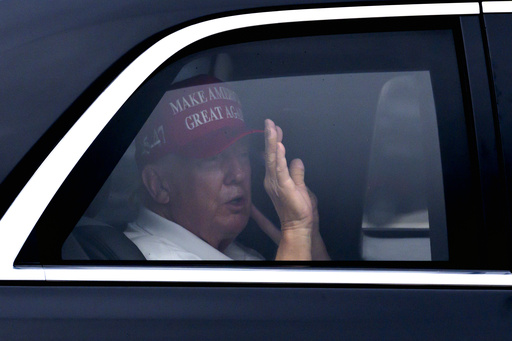WASHINGTON — The Trump administration has issued a directive requiring all schools and universities in the United States to eliminate diversity initiatives within a two-week timeframe or face the possibility of losing federal funding. This move intensifies the ongoing campaign against what the administration perceives as “wokeness,” resulting in significant uncertainty as educational institutions hurry to comply with the new requirements.
In a memorandum released on Friday, the Department of Education mandated the cessation of using “racial preferences” in various aspects of school operations, including admissions, financial aid, and hiring practices. Educational institutions are tasked with abolishing any procedures that differentiate treatment based on race within a strict 14-day period.
This broad-based directive threatens to drastically alter several aspects of educational practices. Among its facets, the memo calls for the discontinuation of personal essays or writing prompts that might infer or predict an applicant’s race. Additionally, it prohibits the organization of dormitories or graduation events exclusively for students of specific races. Furthermore, initiatives aimed at recruiting educators from underrepresented backgrounds could now be interpreted as discriminatory actions.
The memo aims to address what it describes as widespread discrimination in the education sector that disproportionately impacts white and Asian students. Craig Trainor, the acting assistant secretary for civil rights, emphasized that schools must now evaluate students based strictly on merit, achievements, and character, rather than perceived notions of diversity.
Although the memo does not alter existing federal laws, it indicates a shift in how the federal government interprets antidiscrimination regulations. Under the expansive language used, nearly any practice incorporating race may be construed as racial discrimination.
The justification for the memo references the recent Supreme Court decision that prohibits race considerations in college admissions. While that ruling was targeted at admissions, the memo conveys a notion that its implications extend beyond that specific context.
Essentially, the memorandum asserts that educational institutions may not create separate or segregate students based on race or allocate benefits and drawbacks according to racial categories. This directive is seen as an extension of President Trump’s earlier executive order that targeted diversity, equity, and inclusion programs.
In conjunction with this memo, the Education Department revealed a cut of $600 million in grants designated for organizations that provide training to teachers. The rationale cited for this decision was that the programs were fostering “divisive” concepts, such as DEI and critical race theory.
The memo has led to widespread anxiety among college officials nationwide, who are now racing to evaluate how the new rules might affect their operations. At the University of Michigan, President Santa J. Ono noted in a campus communication that leaders are diligently working to grasp the implications of the new requirements. He referenced two key points from the memo: the prohibition of admissions essays that could reveal an applicant’s race and the stipulation that schools cannot waive standardized testing mandates to promote racial balance.
While some institutions predict minimal disruption, others, like Oregon State University, have already concluded through legal reviews that their existing programs comply with relevant state and federal laws. However, the memorandum specifically targets scholarships aimed at particular racial demographics, prompting discussions about whether the Supreme Court ruling encompasses financial aid as well.
The National Association of Student Financial Aid Administrators has indicated that there is no clear consensus on this matter, and they are currently working to understand the potential ramifications of the memo on student financial assistance programs. They expressed concern that the two-week period provided for compliance is inadequate for institutions to assess and implement necessary modifications.
Furthermore, uncertainty loomed during last week’s confirmation hearing for the education secretary nominee, Linda McMahon. When questioned about the potential implications of the president’s order on classes focused on African American history, McMahon admitted she could not provide a definitive answer.




